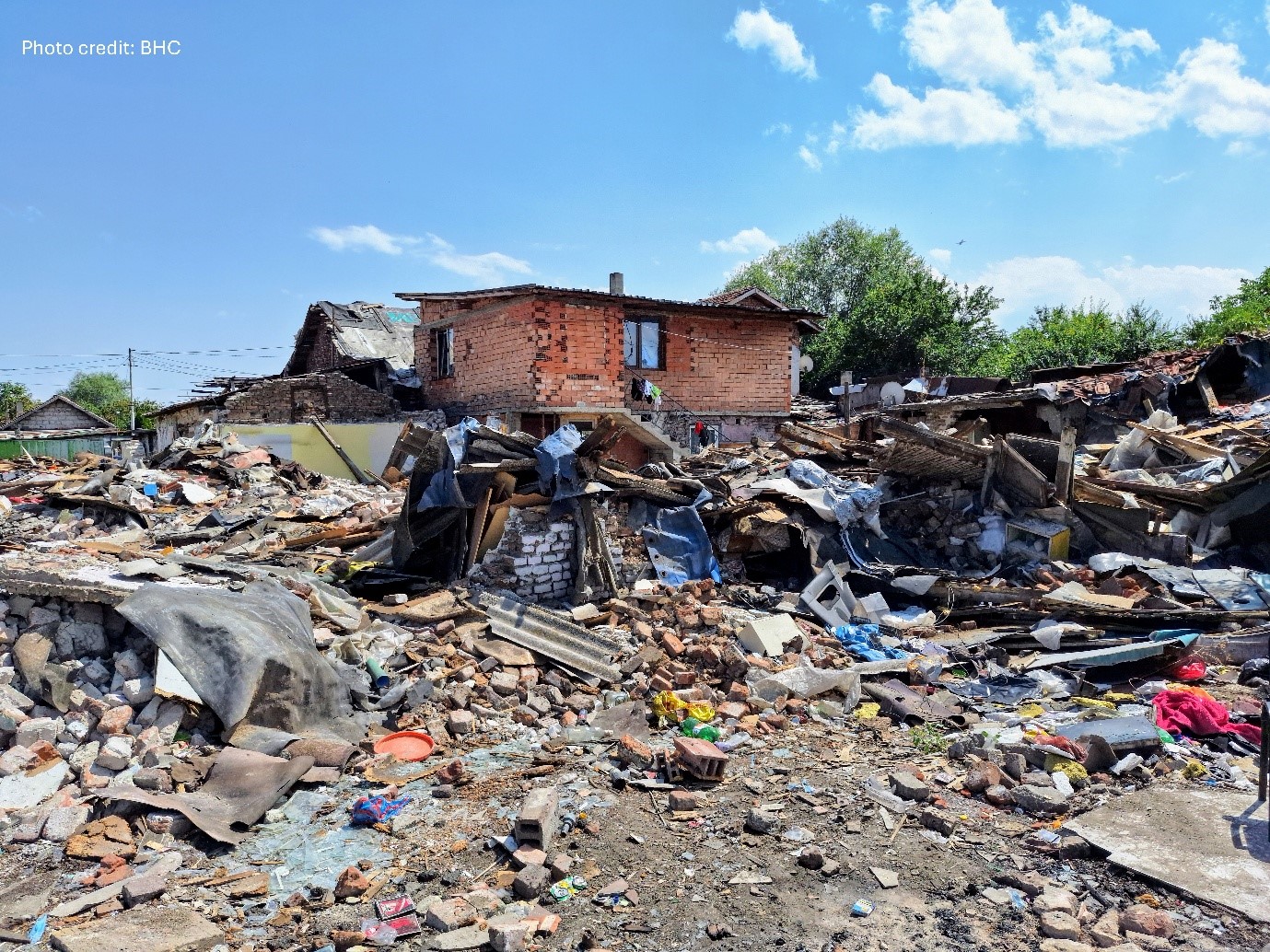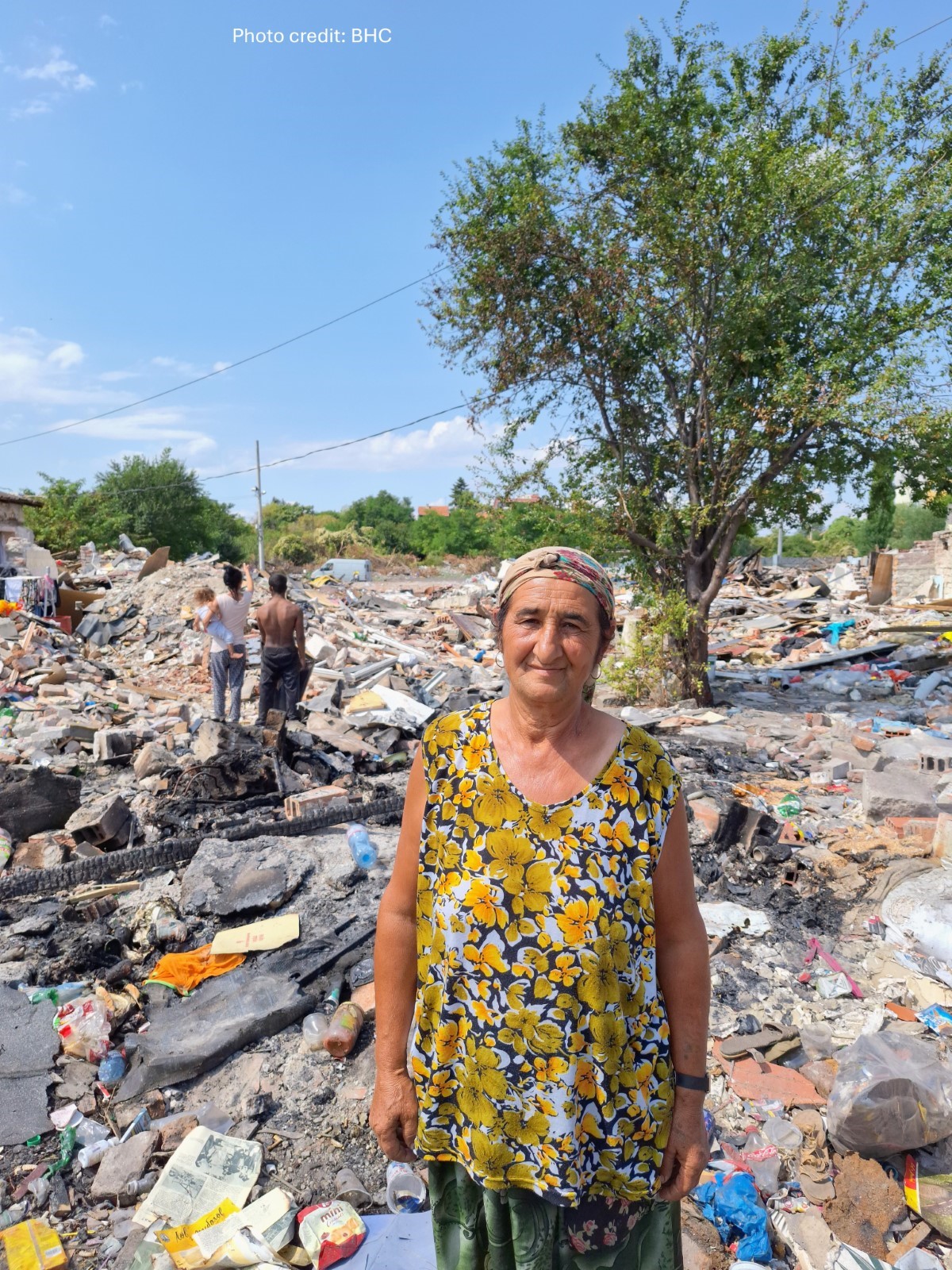The Bulgarian Helsinki Committee Fights Evictions Through Strategic Litigation
Author: Dimitar Keranov
Bulgaria faces significant human rights challenges, including threats to journalists, gender-based violence, and discrimination against religious, sexual, and ethnic minorities, with the Roma minority being particularly affected.
Roma in Bulgaria face widespread discrimination and lack access to basic rights, with over 50% living in segregated neighborhoods. Studies have revealed discrimination in public administration and the justice system, frequent racist remarks by members of the authorities, racial profiling by the police, and a lack of anti-discrimination training for members of the judiciary. Hate speech is prevalent, most of it directed toward Roma, with even politicians using offensive language about them. As a result of this situation, 86% of Roma do not report instances of discrimination and a significant share does not trust the police. All of this normalizes discriminatory practices toward Roma as society is unable to free itself from the endemic racism against this minority.
The most influential domestic human rights organization in the country is the Sofia-based Bulgarian Helsinki Committee (BHC). Established in 1992, it is considered by public bodies and civil society as the main nonstate actor in the sphere of Roma rights. The organization effectively uses all available tools to achieve impact, including litigation before the European Court for Human Rights (ЕCtHR) in order to advance the cause of vulnerable groups and to tackle structural problems with legislation and institutional behavior that are difficult to resolve through advocacy and domestic litigation.
Recognizing the dire need for action in Bulgaria when it comes to safeguarding Roma’s enjoyment of their human and minority rights, the BHC launched in 2023 a project for enforcing these through strategic litigation, supported by the Engaging Central Europe program of the German Marshall Fund of the United States.
Preventing People From Losing Their Home

While the BHC’s strategic litigation work has addressed a wide range of topics, including freedom of expression and police violence, the project’s most significant outcome was observed in the Orlandovtsi neighborhood of Sofia. In 2023, demolition orders were issued targeting the homes of Roma residents without provision for alternative housing. These residents lacked the financial means to secure other accommodation, and for many these homes were their sole shelter and lifelong residence. When the BHC requested official documentation from the planning official responsible and the police, none was provided. As the demolitions began, residents scrambled to salvage their belongings, including removing windows and doors from their homes.
The BHC responded by offering legal assistance to over 120 evicted Roma and pursuing 17 cases to halt unlawful actions (with 14 resolved in a single-instance proceeding), three cases challenging the demolition orders, one case addressing the cancellation of administrative addresses, and one case for access to public information. Thanks to this swift intervention, the demolitions were halted, preventing the people from losing their homes.
Subsequently, the BHC filed an application for interim measures with the ECtHR, which was granted, compelling the government to find housing for those displaced. The organization also applied to the ECtHR on behalf of 52 Roma affected by the demolitions. As a result of these interim measures, the government began providing housing for members of the Orlandovtsi Roma community who had lost their homes.
The outcome of the BHC’s project showed the pivotal role of strategic litigation in advancing human rights and anti-discrimination efforts in Bulgaria, with a particular focus on supporting the Roma minority. More importantly, it reinstated hope among the Roma community in Orlandovtsi, affirming that they are neither forgotten nor abandoned in their struggle for equal rights, and underscoring that they deserve to live in a country free from ethnic discrimination.
